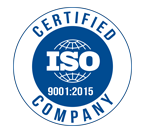Cayman Chemical, 500 µg
-
LLP-3
Cayman ChemicalA cell-permeable ligand of Survivin that blocks its interaction with Ran, resulting in the induction of apoptosis in glioma stem cells (IC50 = 31 µM); abolishes the growth of glioblastoma multiforme cell in spheres and in tumor slice cultures.
-
Cholic Acid 7-sulfate
Cayman ChemicalA naturally occurring metabolite of bile acid that is produced by the conjugation of cholic acid and sulfate, predominantly in the liver and gut.
-
Bafilomycin A1
Cayman ChemicalA selective, reversible inhibitor of vacuolar H+-ATPases (V-ATPases), blocking these proton pumps in mammalian, plant, or fungal cells with an IC50 value in the 4-400 nM range; also inhibits autophagy by preventing vacuolar acidification necessary for autophagosome maturation.
-
17ß-hydroxy Wortmannin
Cayman ChemicalAn analog of wortmannin; irreversibly binds PI3K; inhibits recombinant PI3K and mTOR (IC50 = 2.7 and 193 nM, respectively) and prevents the growth of LNCap cells (IC50 = 1.46 μM).
-
Clasto-Lactacystin ß-lactone
Cayman ChemicalActive metabolite of lactacystin, a widely used selective inhibitor of the 20S proteasome, with at least 10 times better activity; irreversibly alkylates subunit X of the 20S proteasome.
-
Isopropyl dodec-11-enylfluorophosphonate
Cayman ChemicalAn organophosphorus ester that antagonizes the CB1 receptor and inhibits FAAH with similar potencies (IC50s = 2 nM).
-
Estradiol 3-sulfate 17ß-Glucuronide (potassium salt)
Cayman ChemicalA metabolite of estradiol 3-sulfate that has been modified by a UDP-glucuronosyltransferase; enhances utilization by anion transporters, most commonly leading to excretion in urine and bile.
-
17ß-Estradiol-d2
Cayman ChemicalAn internal standard for the quantification of 17β-estradiol by GC- or LC-MS.
-
ß-Zearalenol
Cayman ChemicalA hepatic metabolite of zearalenone that is a less potent agonist of estrogen receptors than the parent compound.
-
(±)13(14)-EpDPA
Cayman ChemicalA DHA epoxygenase metabolite found in rat brain and spinal cord that acts as a preferred substrate for sEH (Km = 3.2 µM); demonstrates antihyperalgesic activity in inflammatory and neuropathic pain models and potently inhibits angiogenesis and tumor growth in in vitro assays.
-
11ß-Misoprostol
Cayman ChemicalMisoprostol is a widely sold analog of PGE1 which has potent but relatively non-selective agonist activity with respect to the prostanoid EP receptor subgroup. Misoprostol has been used therapeutically for many years in humans for the treatment of gastric ulcer disease under the Searle tradename…
-
Ginsenoside Rg2
Cayman ChemicalA protopanaxatriol that has diverse in vitro and in vivo effects, including neuroprotective, anti-inflammatory, and anti-diabetic actions; protects against DNA damage and apoptosis induced by ultraviolet light.
-
Palmitoyl 3-carbacyclic Phosphatidic Acid
Cayman ChemicalContains the 16:0 fatty acid, palmitate, at the sn-1 position; at 25 μM inhibits the transcellular migration of MM1 cells across mesothelial cell monolayers without affecting proliferation; at 0.1-25 μM significantly inhibits autotaxin.
-
VER-49009
Cayman ChemicalAn Hsp90 inhibitor with an IC50 value of 47 nM; induces the expression of HSP27 and Hsp72 while reducing the client proteins c-Raf, B-Raf, survivin, and PRMT5, causing cell cycle arrest and apoptosis.
-
(±)14(15)-EpEDE
Cayman ChemicalAn EpEDE acid formed from DGLA, either by a strong oxidizing agent or by cytochrome P450 epoxygenases; biological properties are poorly understood.
-
D-myo-Inositol-1,3,4,6-tetraphosphate (ammonium salt)
Cayman ChemicalLargely acts a cell signaling intermediate; serving as substrate to produce IP5s, which can be further phosphorylated to produce Ins(1,2,3,4,5,6-)P6; also phosphorylated to produce phytic acid, which serves diverse roles in eukaryotic tissues; a poor activator of the Ins(1,4,5)-P3 receptor in vitro.
-
Microcystin-LR
Cayman ChemicalMicrocystins are hepatotoxic cyclic heptapeptide toxins produced by cyanobacteria. They are responsible for periodic poisonings of humans and livestock drinking fresh water where the blue-green algae are endemic. Microcystin-LR is a selective inhibitor of protein phosphatase 2A (PP2A) (IC50= 0.04…
-
-
Rp-8-CPT-Cyclic AMP (sodium salt)
Cayman ChemicalA lipophilic and non-hydrolyzable cAMP analog that acts as a site-selective inhibitor of PKA type I and II, with preference towards site A of type I and site B of type II.
-
Cdk5 Substrate
Cayman ChemicalA synthetic peptide (PKTPKKAKKL) corresponding to a sequence of histone H1; phosphorylated by Cdk5 with a Km value of 5 µM.
-
Cannabigerovarinic Acid
Cayman ChemicalAn analytical reference material that is structurally similar to known phytocannabinoids; precursor of THCVA in Cannabis; intended for research and forensic applications ,
-
10-Nitrolinoleate
Cayman ChemicalThe product of nitration of linoleate by NO-derived reactive species; activates PPARγ (Ki = 133 nM), inducing CD36 expression in macrophages, adipocyte differentiation, and glucose uptake; can also be metabolized to produce nitrite derivatives which in turn form NO, leading to increased cGMP production.
-
Desmopressin
Cayman ChemicalA synthetic version of the endogenous antidiuretic hormone arginine vasopressin; acts as an agonist at human vasopressin V1a, V1b, and V2 receptors with Ki values of 62.4, 5.8, and 23.3 nM, respectively.
-
?17-6-keto Prostaglandin F1a
Cayman Chemical.DELTA.17-6-keto PGF1α is the non-enzymatic hydrolysis product of PGI3. PGI3 is a COX pathway metabolite of EPA in various tissues such as seminal vesicles, lung, PMNL, and ocular tissues.
-
4-hydroperoxy 2-Nonenal
Cayman ChemicalImmediate precursor of 4-HNE formed from ω-6 hydroperoxides such as linoleic acid and arachidonic acid.
-
Oleoyl Serotonin-d17
Cayman ChemicalAn internal standard for the quantification of oleoyl serotonin by GC- or LC-MS.
-
INT-777
Cayman ChemicalAn agonist of TGR5 (EC50 = 0.82 µM); stimulates the secretion of GLP-1 in mice when given orally (30 mg/kg) after a glucose challenge, particularly when given with a DPP4 inhibitor; increases energy expenditure and reduces hepatic steatosis and adiposity in mice subjected to…
-
MLCK Inhibitor Peptide 18
Cayman ChemicalA selective, cell permeable inhibitor of MLCK (IC50 = 50 nM).
-
PPHP
Cayman ChemicalPPHP is a substrate for the measurement of peroxidase enzymes. PPHP has been used to quantitate the peroxidase activity of COX-1 and COX-2.
-
4-oxo-2-Nonenal
Cayman ChemicalA lipid peroxidation product; actively modifies histidine and lysine residues on proteins and causes protein cross-linking.
-
Creatinine-d3
Cayman ChemicalAn internal standard for the quantification of creatinine by GC- or LC-MS.
-
















